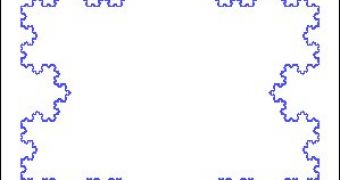Many people heard the phrase "particle physics" even though some of them don't know much about what it is or what it does. Now, a physicist at Harvard University is proposing a new theory, which he called the "unparticle physics."
In a recently published paper, physicist Howard Georgi, a highly appreciated scientist, describes a new branch of science, that should study what he calls "unparticle stuff" a new model that cannot be accounted for by the standard model.
The standard model is a theory which describes three of the four known fundamental interactions between the elementary particles that make up all matter - electromagnetism, the strong interaction and the weak interaction - the fourth being gravitation.
So far, almost all experimental tests of the three forces described by the Standard Model have agreed with its predictions, but there are things this model cannot explain. One of them is the low-energy physics of nontrivial scale-invariance, which Georgi - a highly regarded physicist well-known for his pioneering work in areas including supersymmetry, quantum chromodynamics, and grand unified theories - claims that it can account for the production of unparticle stuff.
The scale-invariant theory deals with objects that don't change when their dimensional qualities are multiplied by a rescaling parameter, like a fractal. The concept of particles doesn't work with this theory, since most particles have a definite nonzero mass. In quantum mechanics, this isn't a problem because the standard model does not have scale-invariance. But Georgi suggests that there could be an undiscovered sector of the standard model that is exactly scale-invariant.
"I have been having a lot of fun with this," said Georgi. "It is a phenomenon that has been understood mathematically for a long time, in the sense that we know of theories that have the peculiar property of scale-invariance. It is hard to describe this because it is so different from what we are used to. For us it makes a big difference whether we measure masses in grams or kilograms. But in a scale-invariant world, it makes no difference at all."
"Clever theorists (like Ken Wilson) showed long ago that there were crazier possibilities which do not involve particles with zero mass, but still have the property that energies can be multiplied by any factor to give a physically equivalent theory," Georgi said. "[But] this is impossible if there are particles with any definite nonzero mass. That is why I called this 'unparticle' stuff."
The scientist predicts that this new concept could be experimentally detected in applications using the upcoming Large Hadron Collider (LHC), the most powerful particle accelerator that will open in early 2008.

 14 DAY TRIAL //
14 DAY TRIAL //